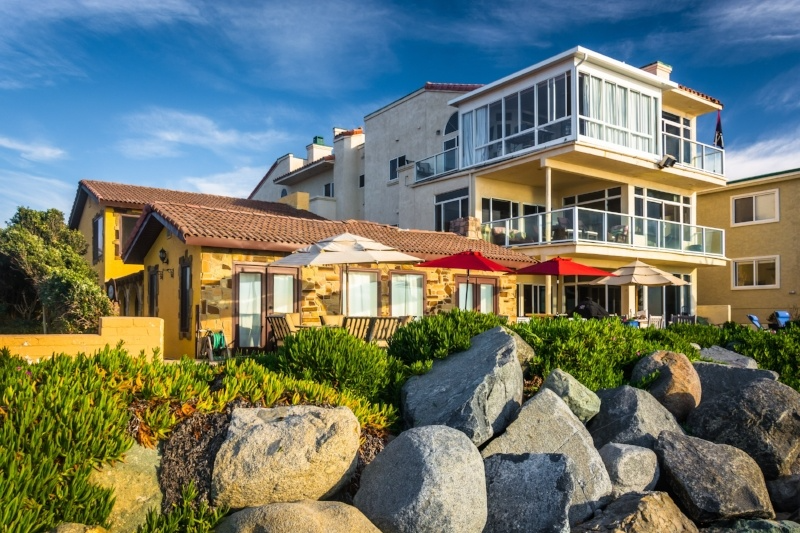It is an age-old question that confronts many homeowners: Should you lease your real estate property for long-term security and a steady income, or sell it for a quick payout and secure a down payment for your next single-family home? The answer is as complicated and multi-faceted as the question.
1. Will you generate a positive cash flow with this property?
Your first concern should be revenue generation. If your investment property cannot secure tenants, trying to rent it out is pointless. It will simply be a money pit. But if you think you stand a good chance of securing a steady flow of reliable tenants, then leasing your property could be a good option. As a rental property owner, finding regular tenants is as important as maintaining your residential property.
When assessing cash flow, review all your expenses associated with the investment property (mortgage, insurance, repairs, taxes utilities, vacancy issues, HOA fees, and anything else). The leasing rate must, at the least, balance out your expenses.
If you think you live in an area where your lease rate can cancel out expenses or, preferably, generate profit, you may decide to lease your real estate. If you cannot secure tenants at those rates, then selling may be your best option. If you’re unsure of how to calculate this, a full-service property management company can help you figure out the best option for leasing your investment property.
2. Can you make a profit when you sell?
When you sell, you are not always guaranteed a profit. You need to consider closing costs, agent fees, taxes, and other expenses when you sell. Sometimes, after you deduct all of those costs, you may even generate a loss on the real estate property.
If you cannot sell the property for a profit, you may want to consider holding onto it as a rental property until the value appreciates.
Finally, compare the profit you can make on your residential property now versus the income flow from a lease. If you can expect to make $1,000 a year profit on your single-family home as a lease, but sell it for $100,000 profit outright, you may want the benefit of an immediate $100,000 than the long-term gain of around $1,000 a year.
However, if you can hang onto that real estate property and have your mortgage paid as the investment property’s value increases (which happens more often than not in San Diego), you could stand to gain far more.
3. Taxes, Taxes, Taxes
No one is a fan of the tax code. That is a controversial declaration, yes, but keep reading before you quit. Within the U.S. federal tax code is a popular income exclusion provision.
Typically, when you sell your home, you have to pay capital gains taxes on the gain in value of your real estate. For example, if you bought your home for $100,000 and sold it for $150,000, you pay taxes on $50,000, not the full $150,000; you pay only on the gain. Capital gains taxes, while lower than income taxes, can reach 20 percent for some taxpayers.
Under the exclusion, when people sell their primary residence, they are allowed to exclude up to $250,000 in gain (for single taxpayers) or $500,000 (for joint filers). Your home qualifies as a primary residence if you lived in it for at least two of the last five years.
So, returning to the original example, if you sell your residential property and make a $50,000 profit, you can exclude it from taxes and keep 100 percent of the money. However, before making financial plans, discuss the matter with a CPA to confirm that you qualify for the exclusion.
4. How does the rental market look?
One problem with selling is that it is a snapshot in time. You can collect on the value of your residential property only once, at the moment it is sold. If the San Diego area neighborhood continues improving and your home doubles in value in a few years, you cannot cash in on that gain.
Speak with a real estate or a property management company or do some research. Is San Diego county improving? Do you think prices will keep going up in the San Diego area? If they are, you may want to hold onto your real estate property, to sell at a later date and better profit.
If the neighborhood looks like it is on the way down, then maybe it is time to cut your losses and move on. Of course, no one has a crystal ball, so no one can ever know what will happen. But real estate typically follows predictable patterns, so you can do your best to predict the rental market. Remember, it is about making an informed decision, not knowing the future.
Should you lease or sell?
Consider these four factors. If you’re stuck, try breaking them into two columns and comparing the results. You can also speak with a San Diego property management company, like PropertyADVANTAGE and ask for their real estate expertise. PropertyADVANTAGE manages rental properties throughout Southern California, and their team of property managers know the Southern California market and can help you make an informed decision on your investment property.
Whether you own a vacation rental, multi-family property, or a single-family home, PropertyADVANTAGE can help you figure out your leasing needs. With our full-service property management services, you will have peace of mind that your property is in trusted hands.

